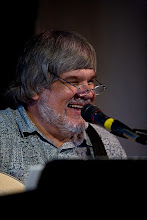June 1962
Every once in a while, I like to reflect on the history of the Beatles, look back on where they've been and what they are looking forward to. Try to get inside their heads. As they are finished with their third and last trip to the seminal St Pauli district in Hamburg, now is a really appropriate time for that.
If you follow this blog, you know that by now, the Beatles are really a professional band. They've come a very long way in a pretty short time. Only two short years ago in 1960, they were not really even a band. They were in a constant search for a drummer. They had three guitarists playing more-or-less crappy bottom of the barrel guitars and judging by the amateur recordings that exist, their arrangements were very much catch-as-catch-can, with each musician playing the part he felt most appropriate, but with no "unifying principle", which has since become the signature "Beatle sound".
They had not yet been to Germany and had only just started hanging out at the Jacaranda, run by Alan Williams, who will get them their first trial by fire stint in Hamburg, Germany (in the wake of a Caribbean steel drum band) and with whom they have since had a falling out. They really get started on a short trip to Scotland, backing Johnny Gentle for a couple of weeks and then make their first trip to Germany where the hours are long, the living conditions worse than spartan, and the pay barely adequate. But the experience and practice time will begin to knit them into an (almost) unbreakable unit both personally and musically. At the same time, the long hours start them on an endless quest for material to perform, much of which is American rock and roll, but some of which comes from very unlikely and diverse sources. Arrest and deportation is their lot at the close of that year and they straggle home to lick their wounds before jumping in again.
1961 would see them lose founding member Stuart Sutcliffe to cupid's arrow and hitch their wagon to Sam Leach et al.and the burgeoning local movement toward jive hall dances. Those dances provide the demand for the Beatles to continue to improve their stage presentation and lead to a second trip to the continent, followed by an almost triumphant return to Liverpool a very much improved band. For the first time, kids come to their shows not just to dance and hang out together, but to watch and listen to them. And they begin to play regularly at the Cavern. Something special is happening here, for those who have the ears to hear it.
In 1962, their equipment is all professional grade and their prospects for a longed for recording contract are looking better and better when they hook up with a local record retailer, Brian Epstein, who agrees to become their manager and to pull all the strings he knows to get them into a proper studio. Of course, there is a price to be paid. They can no longer be just that scruffy crowd who dress like dock workers or worse and who smoke and eat and make private jokes on stage. The hours of playing are less taxing, but also less wild and crazy. The money is better now, but the sheer young rebel "in your face" fun is coming to an end. Perhaps, it is time. All things must pass. Let's see whether this recording session in London leads to something interesting, eh lads?
Thursday, May 31, 2012
Subscribe to:
Post Comments (Atom)






No comments:
Post a Comment